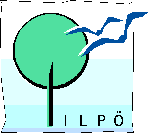 The James Hutton Institute
The James Hutton Institute
This page is no longer updated. The Macaulay Land Use Research Institute joined forces with SCRI on 1 April 2011 to create The James Hutton Institute.
 Regional targeting of EU agri-environmental schemes:
Regional targeting of EU agri-environmental schemes: The challenge facing agricultural policy makers throughout Europe today is to find a way of switching production from the current system towards one which is economically, socially and environmentally sustainable in the longer term. A key to achieving this end must come through a redistribution of CAP money to promote more sustainable forms of agriculture. A start has been made following the agreement of EU regulation 2078 made in 1992 whereby a percentage (4%) of all CAP money has been re-directed for spending on Agri-Environmental Programmes (AEP's).
The EU has now recognised the need for integrated research to look at ways to improve agri-environmental programmes in the future. The ultimate aim of EU Project AIR3 CT94-1296 is to arrive at scientifically justified recommendations for the optimisation and regionalisation of AEP programmes. Through the methodologies being worked on towards this end it is hoped that it will also be possible to develop tools for monitoring the environmental benefits resulting from AEP.
Two key areas of research are being followed by project participants:
a Europe-wide analysis and evaluation of current AEP scheme design, delivery and acceptance by farmers which will enable future schemes to be designed in an optimum way so as to achieve their desired effects.
an analysis of the current conflicts, both actual and potential, between the environment and agriculture which will allow recommendations to be made concerning regional targets which should be aimed-for in order to move towards more sustainable production.
The final recommendations will be based upon an integration of these two approaches. Results will be tested through a series of planned 'platform discussions' between farmers and policy makers in each study region before final presentation to policy makers in the EU and at national/state level in the member countries. Results will be ready at the end of 1998
During the first 2 years of the project, methodological-development and data-collection has been co-ordinated by means of four interdisciplinary sub-groups (Table 1). The four groups work at different vertical levels (geographic and political) within each of the countries and, where possible, apply the methodologies to collect data from study areas selected in each of the countries involved. Within each of the study regions an AEP of some form (established there under EU regulation 2078/92) is offered to the farmers. The regions cover a broad range of agri-geographical conditions from intensively-used polders in the Netherlands to the uplands of the Swabian Alp in Southwest Germany.
Table 1: specialisation and responsibilities of the 4 project sub-groups
| Sub Group | Specialisation | Responsibilities |
| I | Institutional approach- state and European Level |
to understand and document the origins and development of agri-environmental policy. To investigate the implementation structure in the participating countries |
| II | Targeting approach- state and regional level |
develop a GIS based methodology for a regional landscape analysis which defines risk/conflict zones where AEP should support land use compatible with environmental targets for these zones |
| III | Modelling approach- regional and landscape level |
develop user friendly tools for rapid analysis of the effects of current and future AEP's on various social-economic and environmental parameters. |
| IV | Farm level approach | to investigate the reasons for farmer participation or non participation in AEP. To identify areas where scheme design and delivery are necessary. To evaluate the ecological benefits of AEP participation |
The answer to the problem of how to achieve valid recommendations for each region must come from a careful vertical integration of the results from the various levels within the study regions. This will proceed in two steps. First all data must be collected from the various levels and used to build a complete picture ('leitbild') of the study region. Examples of the factors which should be known for each study region include:
The main aim has been to develop a methodological approach to optimising AEP's throughout Europe, rather than attempting to make firm recommendations on what should be done in each area. It is believed that through the regionalisation of measures, targeted to match the social, economical and ecological characteristics of any area, future agri-environmental programmes will play an extremely important role in supporting European farmers in a way that integrates viable production with the protection of our diverse natural and cultural European landscape.
Participants
Further information on this project may be found in the LSIRD directory, or from:
 Dr. Mark Morgan,
Dr. Mark Morgan,
Institut für Landschaftsplanung und Ökologie,
Universität Stuttgart,
Keplerstr. 11,
70174 Stuttgart,
Germany
Tel: +49 711 121 2815
Fax: +49 711 121 3381
Email: mm@ilpoe.uni-stuttgart.de
WWW: http://www.ilpoe.uni-stuttgart.de/ilpoe/eupro.html
24th February 1997